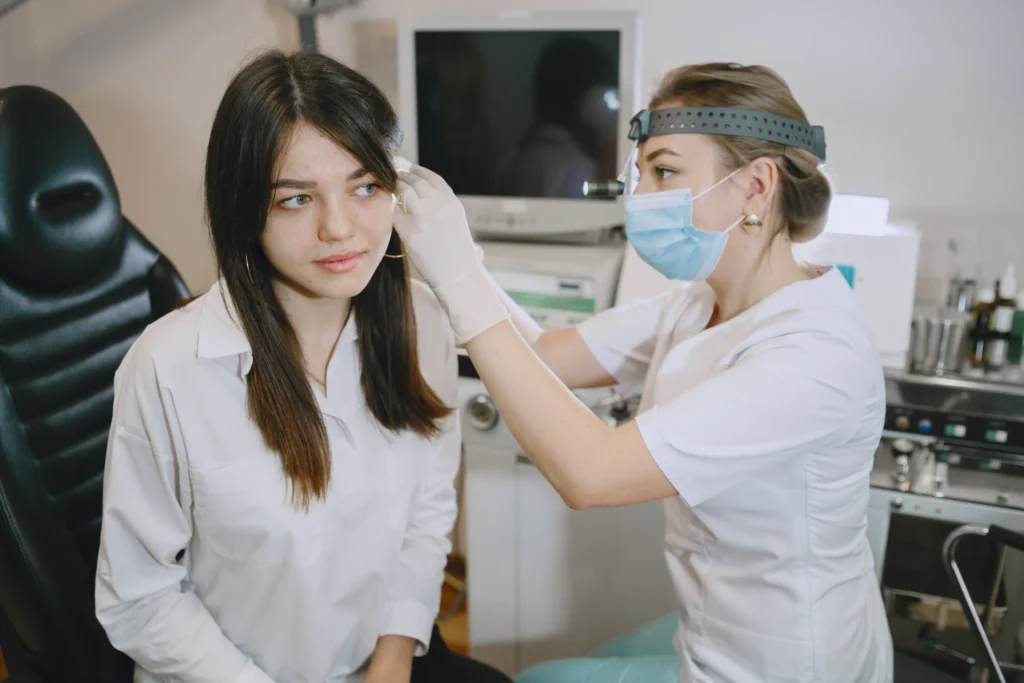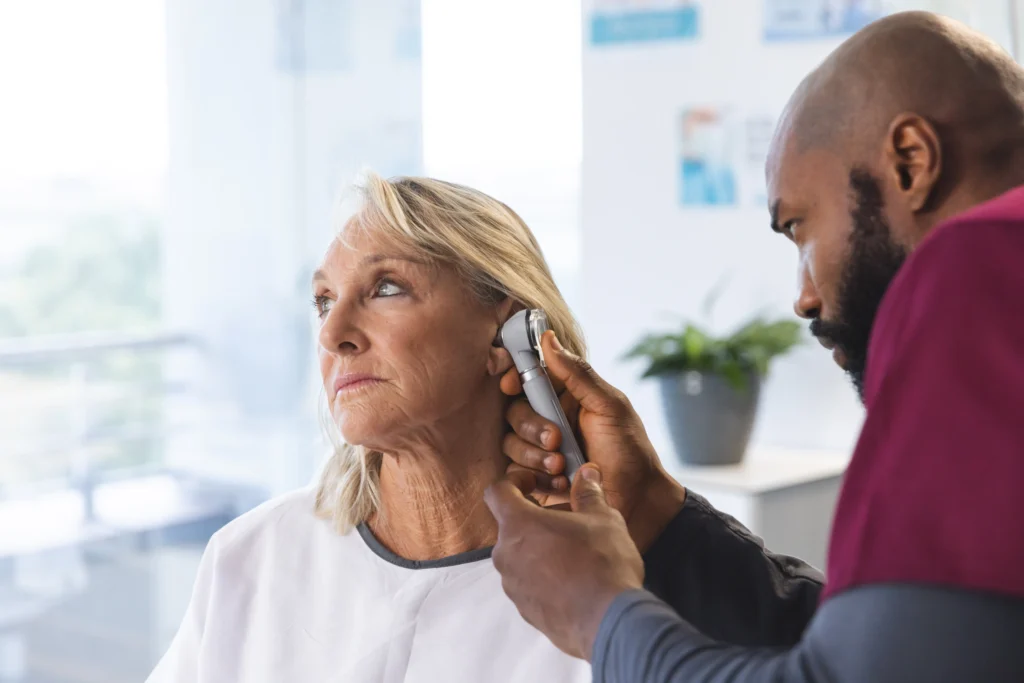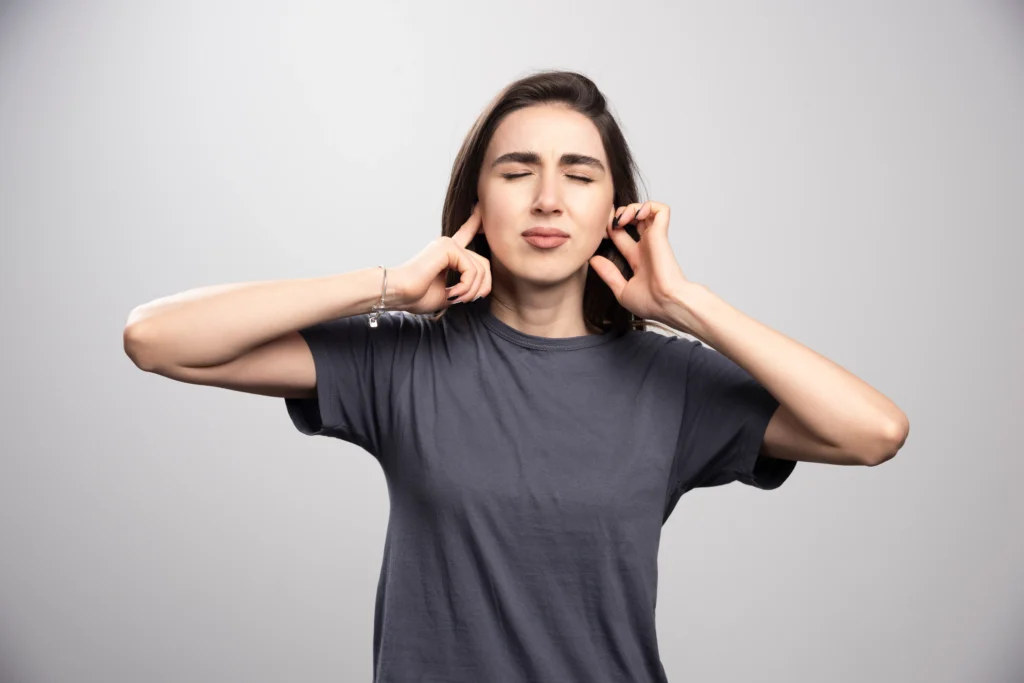Approximately 28.8 million American adults, according to the National Institute of Deafness and Other Communication Disorders (NIDCD), could benefit from wearing hearing aids. Unfortunately, the latest hearing aids statistics reveal that only three million devices are in use in the United States. Needless to say, it leaves a lot of individuals who experience hearing loss without receiving any correction. Hearing loss without appropriate correction can be an isolating situation. Surprisingly, a large majority of people with hearing wait up to 15 years before buying their first hearing aids.
As a result, it’s easy to understand why the average age for first-time hearing aids wearers is 70. The more you wait, the older you will be when you decide to commit to a purchase. Unfortunately, you can’t afford to postpone hearing correction indefinitely.
Hearing loss is a significant cause of social isolation, which can make you vulnerable to developing depression and even dementia. If you are experiencing hearing loss to any degree, you need to consider corrective devices such as hearing aids to improve your lifestyle and maintain your communication. Beware, however, that investing in hearing correction is a commitment not to take lightly. Here’s what you need to know before buying hearing aids for the first time:
Hearing aids don’t cancel hearing loss
Just like glasses don’t eliminate sight loss and magically fix your eyes, hearing aids don’t repair hearing health. They provide an adequate level of correction and sound amplification for you to maintain your lifestyle without being affected by your hearing loss. You can find a variety of hearing aids technology that addresses different requirements and ensures that wearers can make the most of their hearing devices. But even the most innovative hearing aids remain corrective. They don’t resolve the underlying health issue.
As a result, it’s important to remind first-time hearing aids wearers that the devices don’t replace regular hearing checks. You still need to look after your hearing health, so it’s crucial to understand that correction doesn’t mean resolution. When you decide to buy hearing aids, you will need to establish a close relationship with a trusted audiologist to monitor your hearing health and help you adjust your devices if needed.
You will need a hearing test
Realizing you need hearing aids is the first step of your corrective journey. However, you will need to consult an audiologist to take a hearing test. The hearing test is divided into different phases that track your hearing abilities. A pure tone audiometry test acts as guidance for hearing aids. This test helps to detect the quietest sound you can hear. For comparison, people with normal hearing can hear up to below 25 decibels, which is the sound of a whisper. Severe hearing loss can mean that you barely hear the sound of a lawnmower, which is approximately 90 decibels.
Additionally, the audiometric test will also help to define which frequencies you can hear. Some people can’t perceive bass tones or high-pitched sounds, for instance. The combination of these two results helps to identify the best types of hearing devices for you.
Other hearing tests can then determine word recognition in a loud background, which will affect the features of your hearing aids.
Hearing aids need to suit your lifestyle
Everybody is different there’s no such thing as one size fits all. Hearing aids have a variety of tech features that can help to improve your experience if they are suited to your needs. For instance, some hearing aids now provide a wireless Bluetooth streaming functionality that directly streams audio files from your TV or your phone to the device inside your ear. It can be the perfect solution for some wearers.
Noise cancelation is another option for people who work in loud environments. The function prevents background noise from distracting you. You can also find wind noise cancelation for hearing aids that are likely to catch wind sounds, such as behind the ear and in the ear devices.
Remote control functions can connect to an app on your phone to let you change settings in a click, which is great for people who change their audio surroundings throughout the day. Your audiologist can help you to find the most suitable functions for your lifestyle and needs.
They are different hearing aids available
If you still remember the large, clunky hearing aids of yesteryear, be assured that things have changed a lot. Nowadays, most hearing aids are almost invisible and hyper comfortable to wear. You can discuss your concern with your audiologist and find a device that is right for you.
Do you have more questions about buying hearing aids? Call us at +1 (802) 922-9545. The team of experts at Adirondack Audiology is here to help.









